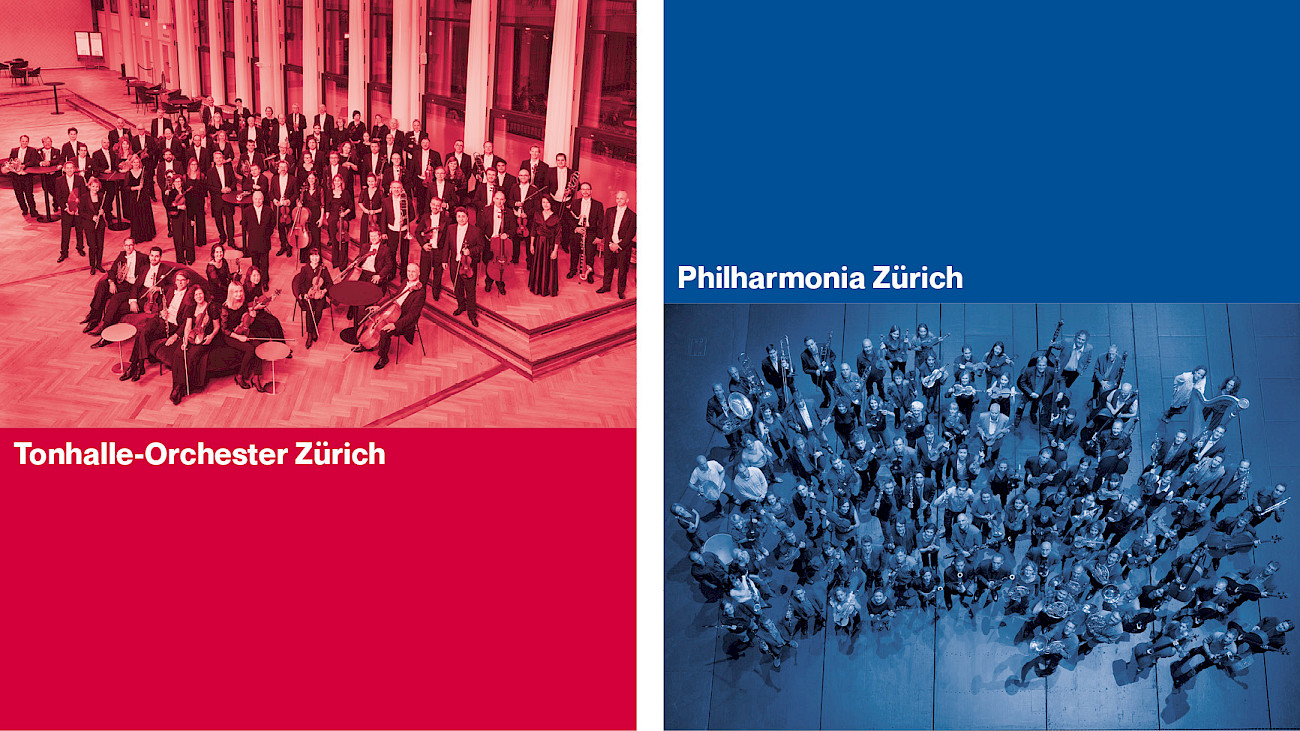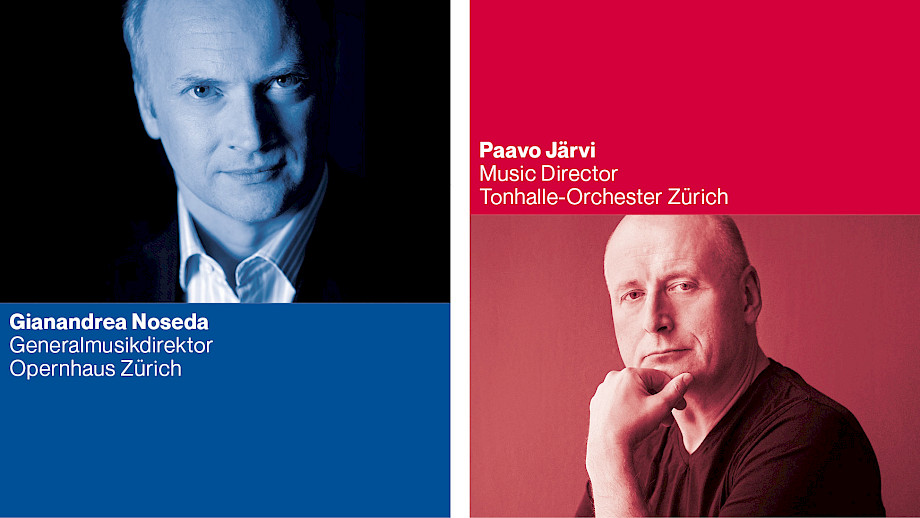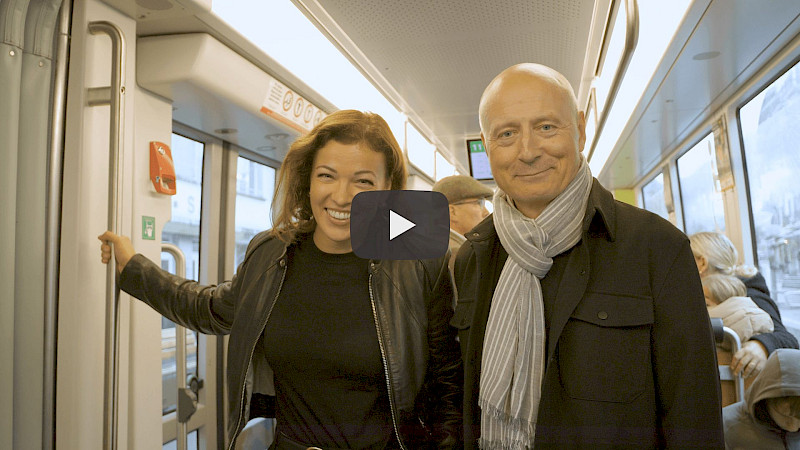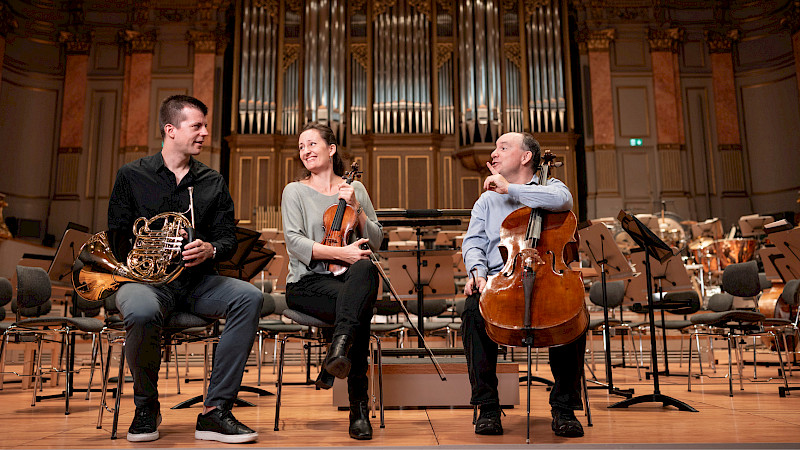
When Two Find Each Other Again
Until the separation of the two orchestras in 1985, the Tonhalle Zürich and the Opernhaus Zürich shared the musicians. Now they are teaming up again.
They have known each other for a long time, and they get along well, the conductors Paavo Järvi and Gianandrea Noseda. When they found themselves in Zurich, one as the Music Director of the Tonhalle-Orchester, the other as General Music Director of the Opernhaus, the idea was therefore obvious: why not plan something together? For example, a concert cycle for Rachmaninoff's 150th birthday, which could take place in both houses?
It is quite possible that the two of them did not realise what such an action would mean. For they were still students and far away from Zurich when the once closely linked houses were amicably but not entirely peacefully. Up to this point, there had been only one large orchestra. It was called Tonhalle- und Theaterorchester (TTO) and comprised 167 centrally organised and paid musicians, who were divided into two formations: 87 of them played as the «blue» formation mainly in the opera house, 80 as «red» formation mainly in the Tonhalle. But when all did everything, that worked in such a way that the idea of a complete separation of the two orchestras soon came up.
Because an opera orchestra and a symphony orchestra are two completely different organisms: In the opera you work for weeks until the premiere, after which the productions remain repertoire, which changes daily. So one evening you play Monteverdi, Strauss the next and in the meantime you are preparing a Mozart production. The symphonic orchestra, on the other hand is organised in blocks: Three days of rehearsals, followed by the concerts – and then it's time for the next programme.
«I am looking forward to celebrating Rachmaninoff's 150th birthday with the Tonhalle-Orchester Zürich and with Paavo Järvi, a colleague and friend I greatly admire. The cycle will show that by working together we can achieve a great artistic result and bring people together in the name of music, beauty and respect.»
Gianandrea Noseda General Music Director Opernhaus Zürich
Organisational puzzle
Jürg Keller, then commercial director of the Tonhalle Society Zurich, remembers well the organisational puzzle that had to be mastered. It was especially difficult when large-scale works were performed in the opera house: «Then musicians from the Tonhalle formation were called in, but they had not been present at the rehearsals because they had their own programmes to play.» Simon Styles, who as a tuba player belonged to the «red» formation but often helped out in the opera, confirms this: «You never knew who you would be sitting next to.
This was not ideal, as the Tonhalle's principal conductors Rudolf Kempe and Gerd Albrecht had already discovered. And many guest conductors were not enthusiastic about the changing line-ups either: «Leinsdorf threw his famous tantrums because of it. Krips looked ironically around: ‹Do I perhaps have my people today?›». This was the headline in the «Züri Woche» on 29 March 1984. The Philharmonia Zurich rehearses for weeks for an opera premiere and then keeps the works in its repertoire for a long time. Therefore, basically everyone agreed: if the two houses wanted to play a role on an international level, if the orchestras were to develop an independent profile and the musicians were to really identify with «their» institution - then there was no getting around an orchestra separation.
«An unprecedented affront»
However, this also meant that the subsidies, which until then had gone into a single «pot», had to be distributed. And this showed how differently numbers could be interpreted: The Tonhalle-Gesellschaft used the number of musicians as its «currency», whereas the Theater AG at the time referred to the number of services rendered - which meant that the actually neatly negotiated ratio of 40:60 led to different results. The result was a dispute that was so fierce and persistent that the then Mayor of Zürich Thomas Wagner lost patience at one point and threatened by letter «that with the obvious inability to reach a consensus between the institutions involved, the subsidy contracts might also be jeopardized».
This and many other letters from all those involved in this complicated process are now in the Zürcher Stadtarchiv (Zurich City Archives). There are several kilos of paper that were sent back and forth between the Tonhalle, the Opernhaus and the city. There were calculations, recalculations, arguments and rants. One reads of an «unprecedented affront», of «raised eyebrows» and «fist-pumping skepticism». And time and again, the linguistic verve betrays the emotions with which these letters were written: The Tonhalle owed the opera house nothing, «no money, no formation services, no musicians», wrote the then Tonhalle director Richard Bächi. Max Koller, president of the administration at the Opernhaus, countered the city's address, saying that it was «really difficult to see why Theater AG should pay even more for receiving fewer services from the Tonhalle-Gesellschaft.
It is a happy coincidence that Gianandrea Noseda and I have both ended up in Zurich; we have known and liked each other for a long time. And we love Rachmaninoff: as an Estonian, I grew up with Russian music, Gianandrea worked in St. Petersburg for a long time. So Rachmaninov's 150th birthday is a very nice opportunity for a friendly collaboration between our two institutions.
Paavo Järvi, Music Director Tonhalle-Orchester Zürich
Friendly relations
In the end, a compromise solution was found. The Tonhalle-Gesellschaft received less money than it had asked for, but more than the opera house initially wanted to cede. In the years that followed, both orchestras were able to increase the line-up, which had been all too scarce after the split. What had been hoped for – a boost in quality, sharpening of the profile, identification of the musicians with «their» house – came true. And even if there were no more official connections: Unofficially, the relationship between the two houses and their orchestras was and is peaceful.
It happens time and again that musicians from one orchestra stand in for the other. Occasionally, careers lead from here to there: for example, violinist Elisabeth Harringer moved from the Opera to the Tonhalle, concertmaster Bartłomiej Nizioł took the opposite path, and Jürg Keller, as commercial director, even managed the round trip: Tonhalle-Opera House-Tonhalle. There are couples, one of whom plays here and the other there, and friendly connections – not only between the chief conductors Paavo Järvi and Gianandrea Noseda. For a few years now, the houses have also offered a combined subscription.
And now, for the first time, a joint musical project is being realised. The Rachmaninoff cycle is scheduled for two seasons, and in November 2023 the conductors will also swap desks. And you will hear what luxury there is in Zurich: two great, highly specialised orchestras in one city - which also get along well with each other.
Translated with DeepL.com






